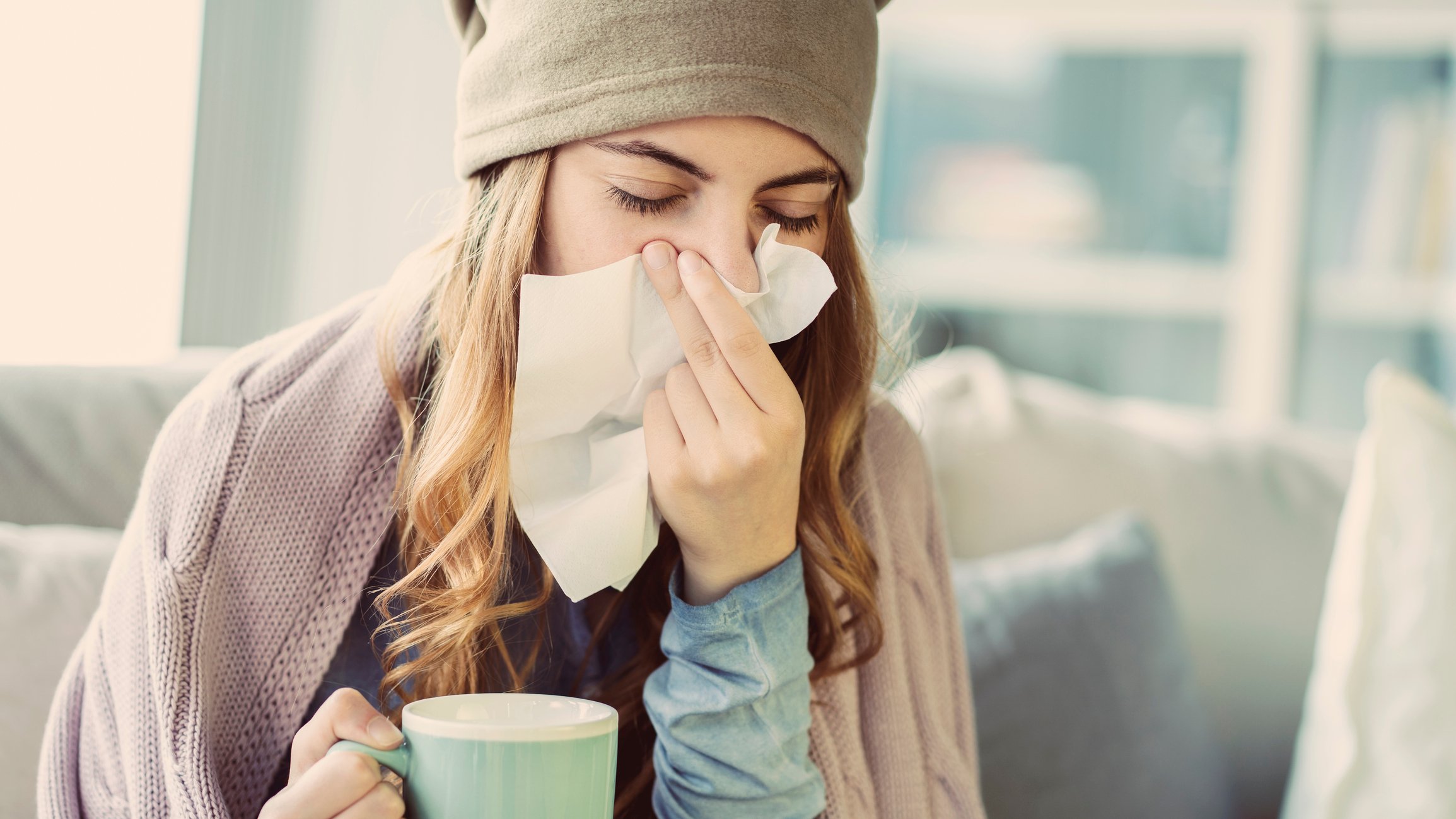The holiday and winter season can be a tough time for individuals with allergies or asthma. From the cold weather to the holiday meals, it’s important for individuals with these conditions to be aware of potential risks they might face. Here are some tips to help you avoid seasonal triggers and holiday challenges.
Asthma
- Avoid holiday air fresheners. Gingerbread, pumpkin, and pine scents can be inviting for some, yet hazardous for others. One-third of people with asthma report health problems from air fresheners which contain volatile organic compounds (VOCs). VOC exposure can increase the risk of asthma in children. Holiday candles and other items that provide seasonal scents can also trigger allergic symptoms in some people.
- A fire in the hearth is wonderful this time of the year, but smoke is a common trigger for those with asthma. You might have to mingle in another room — and as always — stay away from cigarette smoke.
- Asthma can also be triggered by exposure to the cold/dry air of winter. Our increased exposure to viral infections during these winter months is an additional concern for asthmatics.
Seasonal and Environmental Allergies
- Although some areas of the country experience a reprieve from seasonal pollen triggers in the winter months, here in Texas, we get to deal with Mountain Cedar tree pollen. Symptoms which include runny nose, congestion, itchy eyes, and cough, can impact those allergic to this tree’s pollen from late November through February. The male tree produces ‘puffs’ that look like pollen clouds and sometimes resemble smoke. Those with ‘Cedar Fever’ may also experience sore throat, headache, and fatigue, making this a miserable time of the year.
- Christmas trees are often cited as the source of an allergy attack during the holidays. The mold that is associated with watering live trees and the chemicals sprayed on these trees are most likely culprits.
- Tree sap contains terpene and other substances that can irritate skin and mucous membranes. Trees may also be harboring pollen from their time on the tree farm. If you choose a live tree, try blasting it with a leaf blower or rinse it and allow it to dry before bringing it inside. Wear long sleeves and gloves when handling the tree. Running an air purifier in the same room as the tree may also reduce your allergic symptoms.
- Artificial trees and other decorations can still trigger symptoms due to the dust and mold they often collect. Remember to store artificial trees and other decorations in dry/airtight containers and wipe them down before storing them.
- Poinsettias, a member of the rubber tree family, are everywhere this time of year. Although the risk of a severe reaction is low, it’s best to avoid direct contact with this plant if you have a latex allergy.
- Fido and The Thanksgiving Effect. You may have become tolerant to your dog or cat, but if you go away for the holidays or are a college student returning home for the break, you may find yourself sneezing and wheezing. This is known as The Thanksgiving Effect. Speak with your allergist for ways to control these symptoms.
Food Allergies
The holiday season means dining away from home, parties, and special foods. The key to managing food allergies is to be certain what you are allergic to and communicating this information to others. Allergy skin prick testing and, when appropriate, an oral food challenge is the most accurate test for diagnosing a food allergy.
- Always inquire about ingredients in foods, and never leave home without your injectable epinephrine (at any time of the year!)
- Be careful at the holiday feast. Food allergens can show up in the strangest places — so be cautious when making your plate. You may be surprised to learn that even turkey can be tricky! Allergens in stuffing can be absorbed into the meat, so cook the bird unstuffed.
- Consider a natural turkey that has no additives. Some self-basting brands can contain soy, wheat, and dairy.
- If your child has a food allergy, volunteer to provide allergen-free snacks for school parties or holiday events to ensure there will be safe food available your child can enjoy. Remind your child to always ask if this food is “safe” for them as there is an abundance of new items around during this season.
Take Care of Yourself!
- Get enough sleep, manage stress, and stay hydrated.
- Always carry your allergy and asthma medications like antihistamines, inhalers, and epinephrine.
- If traveling by plane, pack medications in your carry-on bag in the event your luggage does not arrive with you.
- Wash your hands frequently to avoid illness, and make sure you are up to date on all vaccinations, including your annual flu shot. No one wants to be sick, especially this time of year!
Best wishes for a safe and symptom-free holiday season! Remember, we are here to help should you need us. Call us at (210) 616-0882.
Share this entry
-
Share on Facebook
Share on Facebook
-
Share on Twitter
Share on Twitter
-
Share on WhatsApp
Share on WhatsApp
-
Share on Pinterest
Share on Pinterest
-
Share on LinkedIn
Share on LinkedIn
-
Share on Tumblr
Share on Tumblr
-
Share on Vk
Share on Vk
-
Share on Reddit
Share on Reddit
-
Share by Mail
Share by Mail



